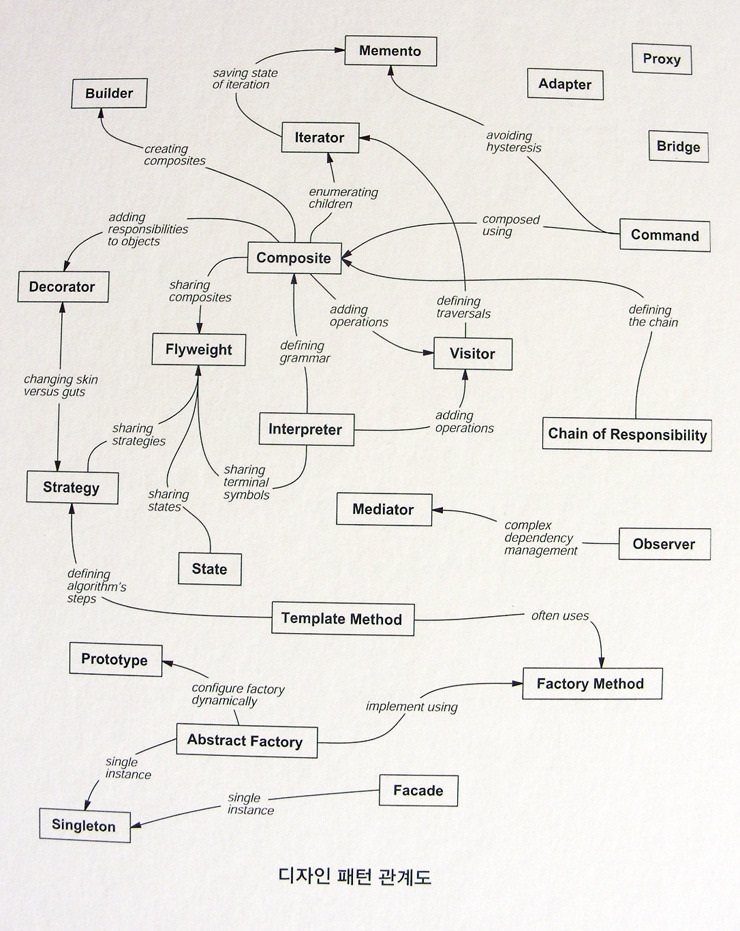Differences between Proxy and Decorator Pattern – Stack Overflow
Decorator: 새로운 기능 추가가 목적
Proxy: 접근 제어가 목적

Just another Kyoung Shin Park's Lectures Sites site
Differences between Proxy and Decorator Pattern – Stack Overflow
Decorator: 새로운 기능 추가가 목적
Proxy: 접근 제어가 목적
lecture5
lecture4
java2-lecture4
lecture3

Abstract Factory – allows the creation of objects without specifying their concrete type
Builder – uses to create complex objects
Factory Method – creates objects without specifying the exact class to create
Prototype – creates a new object from an existing object
Singleton – ensures only one instance of an object is created
Adapter – allows for two incompatible classes to work together by wrapping an interface around one of the existing classes.
Bridge – decouples an abstraction so two classes can vary independently.
Composite – takes a group of objects into a single object.
Decorator – allows for an object’s behavior to be extended dynamically at run time.
Facade – provides a simple interface to a more complex underlying object.
Flyweight – reduces the cost of complex object models.
Proxy – provides a placeholder interface to an underlying object to control access, reduce cost, or reduce complexity.
Chain of Responsibility – delegates commands to a chain of processing objects.
Command – creates objects which encapsulate actions and parameters.
Interpreter – implements a specialized language.
Iterator – accesses the elements of an object sequentially without exposing its underlying representation.
Mediator – allows loose coupling between classes by being the only class that has detailed knowledge of their methods.
Memento – provides the ability to restore an object to its previous state.
Observer – is a publish/subscribe pattern which allows a number of observer objects to see an event.
State – allows an object to alter its behavior when its internal state changes.
Strategy – allows one of a family of algorithms to be selected on-the-fly at run-time.
Template Method – defines the skeleton of an algorithm as an abstract class, allowing its sub-classes to provide concrete behavior.
Visitor – separates an algorithm from an object structure by moving the hierarchy of methods into one object.
Install OpenJDK 21.0.2 & Set Environment Variables
https://jdk.java.net/
Download Visual Studio Code & Install
https://code.visualstudio.com/download
Install “Extension Pack for Java” In Visual Studio Code which supports Java version 1.5 or above.
Run Hello.java